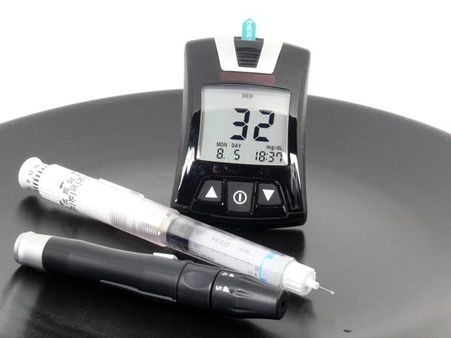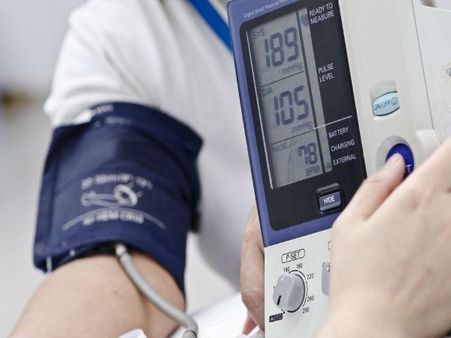Just In
- 5 hrs ago

- 5 hrs ago

- 9 hrs ago

- 16 hrs ago

Don't Miss
- Finance
 FREE, FREE, FREE! 3:1 Bonus: Pharma Stock Hits Back-To-Back Upper Circuits; 500 Shares To Earn Rs 1,69,500
FREE, FREE, FREE! 3:1 Bonus: Pharma Stock Hits Back-To-Back Upper Circuits; 500 Shares To Earn Rs 1,69,500 - Sports
 Manchester City vs Chelsea LIVE Streaming: Where to Watch FA Cup Semi-Final in India, UK, USA and Other Countries
Manchester City vs Chelsea LIVE Streaming: Where to Watch FA Cup Semi-Final in India, UK, USA and Other Countries - Movies
 Pukaar Dil Se Dil Tak Promo: Sayli Salunkhe Impresses In First Video Of Sony TV Show, Details About Her Role
Pukaar Dil Se Dil Tak Promo: Sayli Salunkhe Impresses In First Video Of Sony TV Show, Details About Her Role - News
 Chinese President Xi Jinping Orders Biggest Military Reorganisation Since 2015
Chinese President Xi Jinping Orders Biggest Military Reorganisation Since 2015 - Education
 Exam Pressure Does Not Exist; Studying Punctually is Crucial; Says Aditi, the PSEB 2024 Topper
Exam Pressure Does Not Exist; Studying Punctually is Crucial; Says Aditi, the PSEB 2024 Topper - Automobiles
 Suzuki Swift Hatchback Scores 4 Star Safety Rating At JNCAP – ADAS, New Engine & More
Suzuki Swift Hatchback Scores 4 Star Safety Rating At JNCAP – ADAS, New Engine & More - Technology
 Dell Introduces AI-Powered Laptops and Mobile Workstations for Enterprises in India
Dell Introduces AI-Powered Laptops and Mobile Workstations for Enterprises in India - Travel
 Journey From Delhi To Ooty: Top Transport Options And Attractions
Journey From Delhi To Ooty: Top Transport Options And Attractions
What Happens When You Skip Meals
Know what happens to your body when you skip meals. Check them out.
Do you often skip meals due to work pressure? Are you planning to skip your breakfast or lunch or dinner to reduce weight? If yes, then read on.
Skipping meals actually, has many negative side effects and hence, should be avoided. Skipping meals does more harm to the body than you can imagine.
Eating 3-4 big meals a day helps your body take up essential nutrients required for good health and also prevents you from binge eating. Skipping meals on the other hand does just the opposite. It also breaks down the muscle tissues and can actually lead to weight gain and a host of other problems.
Studies suggest that skipping meals drains energy out of the body, which is why people who skip meals burn lesser calories as they don't indulge in any physical activity or exercise.

Studies also show that when you starve, the supply of glucose to your brain is reduced and this can lead to low concentration, low memory and low focus. This is the reason why students and working professionals should not skip meals as they need to perform well and concentrate on their work.

You should always have a snack handy and never go hungry. You should eat snacks high in protein and fibre.
Let us now look at some of the things that happen when you skip meals:

1) Diabetes Risk
Skipping meals causes the liver cells to stop responding to insulin - the hormone that is responsible for breaking down sugar. This means that the liver does not get the signal to stop producing glucose and keeps pumping it into the blood. This excess glucose gets accumulated in the blood and can cause type 2 diabetes over time.

2) Frequent Mood Swings
When your body does not get enough nutrients due to skipping meals, your emotional functioning changes and due to fluctuating levels of blood sugar in the body, you become irritable and moody. Frequent mood swings hamper the proper functioning of your brain.

3) Low Metabolism
When you starve or skip meals, the metabolic rate in your body is lower which is why the body does not burn extra calories but rather stores them as fat. Thus, low metabolism can also lead to weight gain. So you should eat breakfast every morning to fuel your body.

4) Stress
When you skip meals, the body gives you the required amount of energy by releasing adrenaline and other hormones. However, over time, this additional stress on the body can give rise to various diseases like heart disease, high blood pressure, diabetes, depression, stress and anxiety.

5) Bad Breath
Not eating reduces the amount of saliva in your mouth and a dry mouth is ideal for bacteria to multiply. This further leads to bad breath. So, to prevent your mouth from smelling, you should stop skipping meals.

6) Headache And Fatigue
Skipping meals may lower your blood sugar levels that in turn may cause your body to release hormones that narrow your arteries and increase your blood pressure. As a result of this, you may experience headache, fatigue and nausea. If you skip meals your body does not get enough energy and you may also lose consciousness.

7) Blood Pressure Fluctuations
Skipping meals stimulates your body to release hormones to compensate for low glucose levels. This in turn, affects the blood pressure levels and can also cause narrowing of arteries in future.
-
 healthWhy Are Dopamine Boosting Foods Good For Your Overall Health? Check This List To Add It Naturally To Your Diet
healthWhy Are Dopamine Boosting Foods Good For Your Overall Health? Check This List To Add It Naturally To Your Diet -
 healthKeep Your Cooking Method Under Check Because These 9 Foods Lose Their Nutrition When Overcooked
healthKeep Your Cooking Method Under Check Because These 9 Foods Lose Their Nutrition When Overcooked -
 healthIf You Are Consuming These Foods, You Are Unknowingly Following An Anti Pollution Diet
healthIf You Are Consuming These Foods, You Are Unknowingly Following An Anti Pollution Diet -
 healthIndigenous Delicacies: 5 Rare Indian Wild Foods That Are So Healthy You Should Try It!
healthIndigenous Delicacies: 5 Rare Indian Wild Foods That Are So Healthy You Should Try It! -
 wellness5 Asthma-Friendly Foods: Breathe Easy With These Foods For Better Lung Health
wellness5 Asthma-Friendly Foods: Breathe Easy With These Foods For Better Lung Health -
 healthHeart-Healthy Tips For Garba: Foods To Avoid And Tips For Safe Celebrations
healthHeart-Healthy Tips For Garba: Foods To Avoid And Tips For Safe Celebrations -
 insyncMan Creates World’s Hottest Chilli Pepper, Pepper X: How Does It Feel To Eat It?
insyncMan Creates World’s Hottest Chilli Pepper, Pepper X: How Does It Feel To Eat It? -
 healthCan Eating These Foods Trigger Tumour Growth?
healthCan Eating These Foods Trigger Tumour Growth? -
 healthChew These 4 Foods For A Defined Jawline
healthChew These 4 Foods For A Defined Jawline -
 wellnessWorld Anaesthesia Day 2023: Foods With Anaesthesia-Like Properties
wellnessWorld Anaesthesia Day 2023: Foods With Anaesthesia-Like Properties -
 healthWorld Cancer Day 2024: Exploring Anti-Cancer Properties Of Indian Herbs And Spices Which Are Natural Healers
healthWorld Cancer Day 2024: Exploring Anti-Cancer Properties Of Indian Herbs And Spices Which Are Natural Healers -
 wellnessFoods You Can Eat When You Have Diarrhoea (Loose Motion)
wellnessFoods You Can Eat When You Have Diarrhoea (Loose Motion)


 Click it and Unblock the Notifications
Click it and Unblock the Notifications



